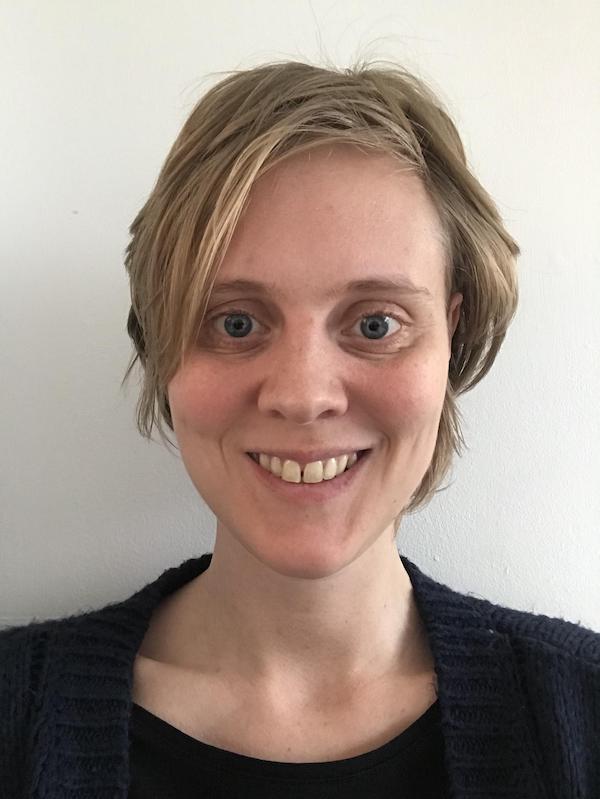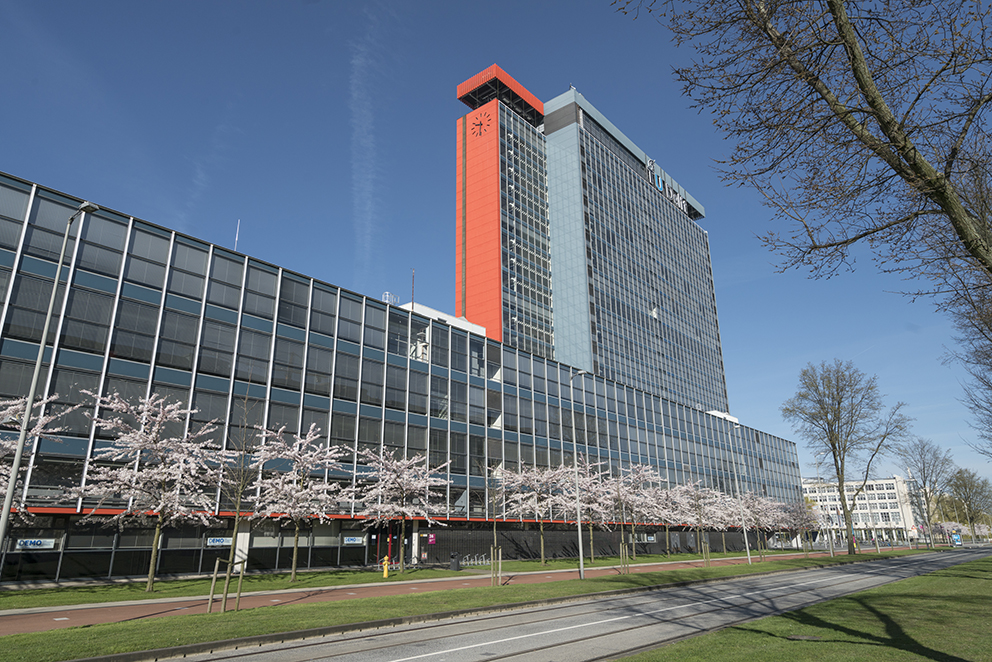In May’s blog post, we feature an interview with Dr. Lisanne Rens, Assistant Professor of Mathematics, Delft University of Technology, Netherlands.
Take it away, Lisanne!
If you have never met me in real life, you might better recognize me as Elisabeth Rens, or E.G. Rens, which is the name that shows up on my publications. I have managed to confuse a number of people with this, so now that that’s out of the way, let’s continue.

My current position and research
It still feels very recent (August 2020) that I started my tenure track position in Delft. But it’s been almost a year now! Because of the lock-downs, my days are kind of boring and the same, except for some online teaching or meetings here and there. I am very happy to now have some bachelor’s and master’s students to supervise and work with, because it gives some variety in my work days and I can connect with people!
My research is in cell migration and collective cell behavior. I am particularly interested in how interactions between cells and their environment affects cells and tissues. Can we understand how the extracellular environment triggers cell migration or changes its direction? How do cells migrate together and how do mutations or changes in the environment affect their collective behavior? These are all relevant questions for embryonic development, wound healing and cancer metastasis. And so many different things are at play, which makes it very complex. I explore such questions using multi-scale models that include cell shape, cell signaling, cell forces, cell-cell and cell-extracellular matrix interactions.
What motivates my research is the notion that with our small but vital research steps, we can migrate toward a more fundamental understanding of biological processes. All these small steps we’re collectively making ultimately can have great significance and benefit society.

When did you first become interested in mathematics and biology?
My interest in applying mathematics to biology started very early. Already in high school, I got frustrated when in biology we’d learn “what is going on”, but I felt I did not understand it enough. I wanted to know how and why it’s like that? I went to study mathematics in university, and there I undertook some projects related to biology and medicine. Since I enjoyed doing those projects, the obvious follow up for me was to apply for PhD positions. I figured that even if I ultimately went into industry, I’d like to have a research-type job. I liked (and continue to like) to learn new things and really dive into a project.
Why did I get into cell migration and collective cell behavior specifically? It wasn’t a very conscious choice to be honest. I knew I wanted to do “something” in mathematical biology. Multiple options for a PhD were in the picture, but the best fit for me was at CWI in Amsterdam, where I worked with Roeland Merks. After my PhD, I wanted to explore a career in science and so I made a big move with my family (husband and 2-year-old) to work with Leah Edelstein-Keshet as a postdoc at the University of British Columbia.
How did you come to run your own group?
About 1.5 half year into my postdoc (during which my second child was born), I started looking into my next job. I was applying to both tenure track and postdoc positions, all in the Netherlands. We were hoping to go back home and be closer to the grandparents of our kids. I was very excited to apply for the tenure track in Delft, as this is where I did my undergrad and graduate program in Applied Mathematics. So, you can imagine that I am very glad to have obtained a position here - it’s like returning home.
Do you have any advice for someone considering a career in mathematical biology?
It’s always hard to give advice, because there are so many ways into mathematical biology and there are biases and privilege at play. But I am going to give it a try. Starting with a shout out to my supportive partner, who is a stay-at-home dad for most of the time, which made it easier to move abroad for a postdoc.
I have mentors that were determined to help me succeed and continue to encourage me even after I left their group. My advice is to seek mentors, in and outside of your lab. Anyone can be a mentor, they don’t even have to be much more senior. For instance, the perspective from a postdoc-friend from other labs can be very helpful. In getting the most out of talking with mentors, I believe openness is very crucial. Usually, people respond to openness with openness and that can be very elucidating and helpful.
Hone your interdisciplinary skills. It’s very helpful to collaborate with biologists whenever you can. You can easily get stuck in all the modeling technicalities and feel like you are not getting anywhere, and get stuck. Frequently going back to the biology and taking a more bird’s-eye view may help you go forward again and stay motivated.
Furthermore, don’t be afraid to dabble or dive into projects outside of your current niche. If you are trained as a mathematician, applying your methods or learning new methods for different biological topics is totally something that you can do! Say yes to opportunities that attract you, and worry later. You don’t have to be the best in everything right away, we all need to learn things, and seek advice.
What do you like to do in your spare time outside of work?
I love my weekly ballet classes. I only skip ballet class when I am sick or at a conference. I have a few video games that I like to play. And of course, family dinner, play-time with the kids and bringing them to bed is something I don’t want to miss.